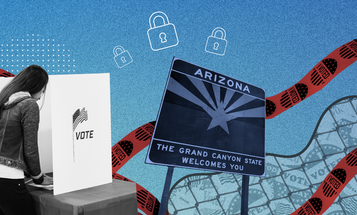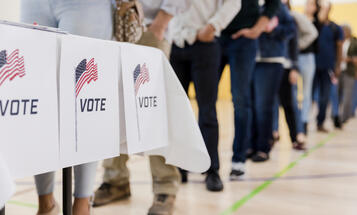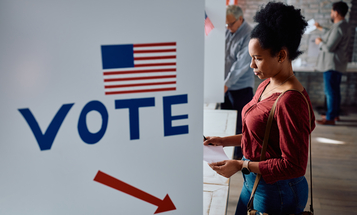
Nuns, Seniors, UFOs, and the Growing Problem of Voter ID Requirements
The Wausau Daily Herald reported Sunday that Ruthelle Frank, an 84 year old Wisconsin woman who has voted in every election since 1948 and served on her village board since 1996, might not be able to vote in 2012 unless she can cough up $200 to prove she really is Ruthelle Frank.
The state’s new, restrictive voter ID law functions like a de facto poll tax for over 175,000 older Wisconsinites who lack a government-issued photo ID. Some can afford to pay to obtain an ID they don’t otherwise need. Others will be unable or unwilling to pay, and simply stay home.
Ms. Frank summed it up: “I look at that like paying a fee to vote.”
And, unfortunately, the Wisconsin law is just the tip of the iceberg. Eight new states passed voter ID laws in 2011, piling on to Georgia’s and Indiana’s 2005 ID laws.
Speaking of Indiana, that’s where ten or more retired nuns were unable to vote in the 2008 presidential primary because of the state's restrictive voter ID law. The local pollworker was a sister in their own convent, but was forced to turn them away.
These absurd stories highlight what is quickly becoming a national problem.
Restrictive voter ID laws were introduced in a whopping 34 state legislatures in 2011. The Brennan Center for Justice estimates that laws passed this year alone will make it harder for 3.2 million voters without state-issued photo ID to participate in the upcoming election. You can find Demos testimony to Congress on the severity of these restrictions and their potential impact here.
In a disturbing new report chronicling systematic efforts to “block the vote” across the U.S. this year, NAACP called new voter ID laws “[t]he heart of the modern block the vote campaign.” You can understand why the NAACP is so alarmed, given its estimate that a quarter of African Americans (some 6.2 million African-American voters) and 16 percent of Latinos (or about 2.9 million citizens) do not possess valid photo ID. By comparison, only 8 percent of whites lack a current government-issued photo ID.
What’s the rationale for all of these new voting restrictions? Preventing voter fraud -- which might make sense if anyone could find any to prevent.
Law professor Justin Levitt points out that since 2000 there have been more UFO sightings in the U.S. than documented cases of the type of voter fraud that could be prevented by photo ID—just nine cases of impersonation between 2000 and 2006 out of more than 400 million votes cast. (The League of Women Voters debunks myths about voter impersonation in this helpful blog post.)
Back to Indiana, where a volunteer election protection lawyer had this to say:
Here's the supreme irony. . . This law was passed supposedly to prevent and deter voter fraud, even though there was no real record of serious voter fraud in Indiana. Here you have a bunch of nuns whose votes can't be accepted by a bunch of nuns. . . who live with them in the polling place in their convent because they don't have an ID.
I guess we’d better make sure we’re checking the pilots of those UFOs for ID as they line up to vote — because it seems like they’re the only ones trying to impersonate humans at the polls.



